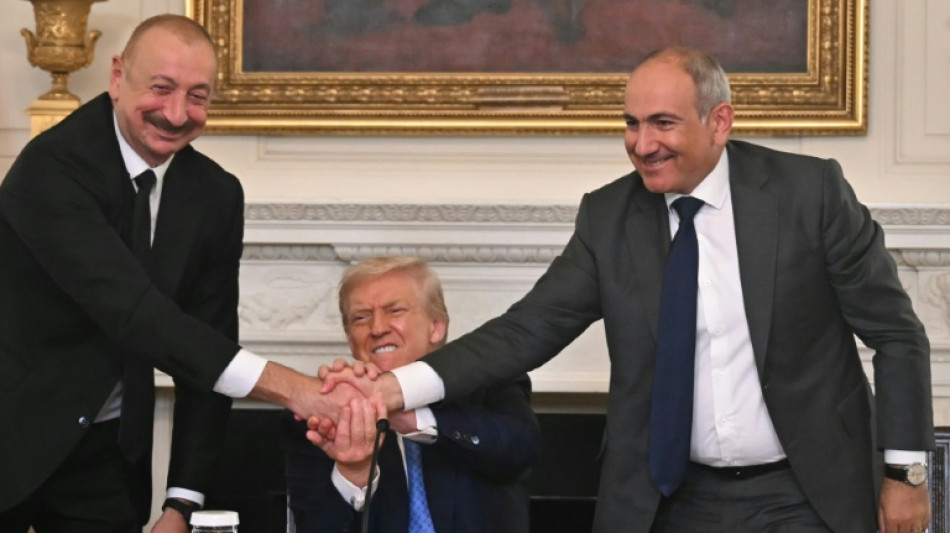
-
 Trump unlikely to win Nobel Peace Prize, but who will?
Trump unlikely to win Nobel Peace Prize, but who will?
-
Qatar, Turkey to join third day of Gaza peace talks in Egypt
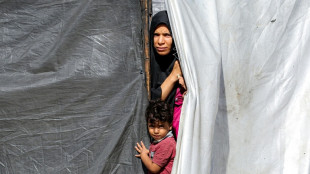
-
 Study finds women have higher genetic risk of depression
Study finds women have higher genetic risk of depression
-
Dolly Parton's sister calls for fan prayers over health issues

-
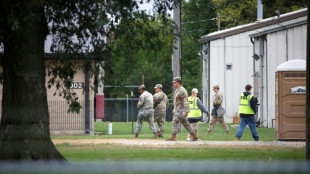 On Trump's orders, 200 troops from Texas arrive in Illinois
On Trump's orders, 200 troops from Texas arrive in Illinois
-
Two bodies found, two missing after Madrid building collapse
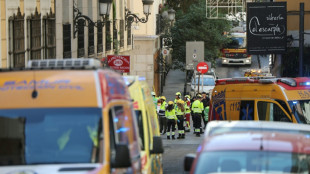
-
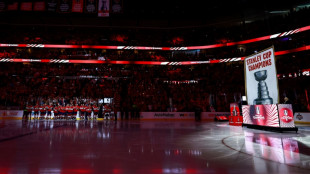 Panthers raise banner as NHL three-peat bid opens with win
Panthers raise banner as NHL three-peat bid opens with win
-
Nobel physics laureate says Trump cuts will 'cripple' US research
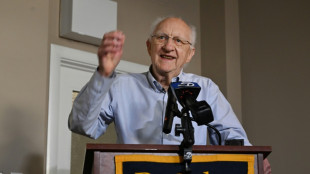
-
 UFC star McGregor suspended 18 months over missed drug tests
UFC star McGregor suspended 18 months over missed drug tests
-
Trump talks up Canada trade deal chances with 'world-class' Carney
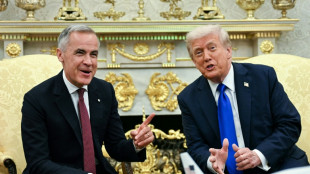
-
 Ecuador president unharmed after apparent gun attack on motorcade
Ecuador president unharmed after apparent gun attack on motorcade
-
Lyon exact revenge on Arsenal, Barca thrash Bayern in women's Champions League

-
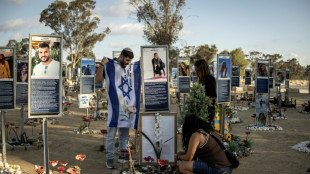 Trump says 'real chance' to end Gaza war as Israel marks attacks anniversary
Trump says 'real chance' to end Gaza war as Israel marks attacks anniversary
-
Gerrard brands failed England generation 'egotistical losers'
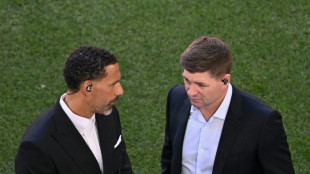
-
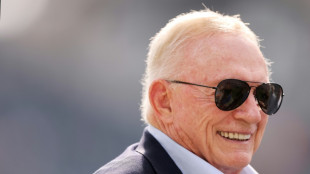 NFL fines Cowboys owner Jones $250,000 over gesture to fans
NFL fines Cowboys owner Jones $250,000 over gesture to fans
-
Bengals sign veteran quarterback Flacco after Burrow injury

-
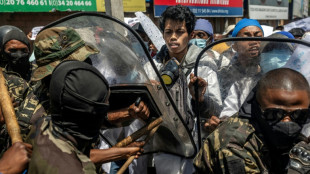 New prime minister inspires little hope in protest-hit Madagascar
New prime minister inspires little hope in protest-hit Madagascar
-
Is Trump planning something big against Venezuela's Maduro?
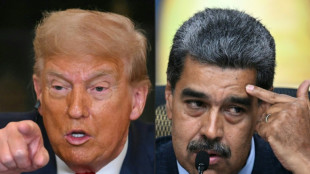
-
 EU wants to crack down on 'conversion therapy'
EU wants to crack down on 'conversion therapy'
-
French sex offender Pelicot says man who abused ex-wife knew she was asleep
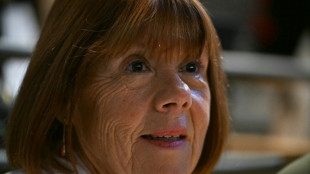
-
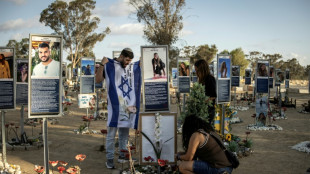 Trump says 'real chance' to end Gaza war as Israel marks Oct 7 anniversary
Trump says 'real chance' to end Gaza war as Israel marks Oct 7 anniversary
-
UK prosecutors to appeal dropped 'terrorism' case against Kneecap rapper

-
 Spain, Inter Miami star Alba retiring at end of season
Spain, Inter Miami star Alba retiring at end of season
-
EU targets foreign steel to rescue struggling sector
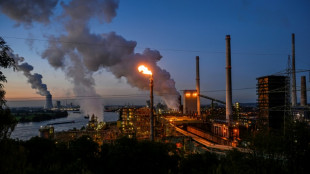
-
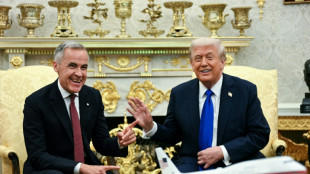 Trump talks up Canada deal chances with visiting PM
Trump talks up Canada deal chances with visiting PM
-
Knight rides her luck as England survive Bangladesh scare

-
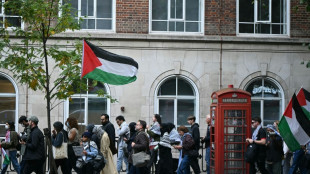 Pro-Gaza protests flare in UK on anniversary of Hamas attack
Pro-Gaza protests flare in UK on anniversary of Hamas attack
-
Top rugby unions warn players against joining rebel R360 competition

-
 Outcast Willis 'not overthinking' England absence despite Top 14 clean sweep
Outcast Willis 'not overthinking' England absence despite Top 14 clean sweep
-
Trump says 'real chance' of Gaza peace deal
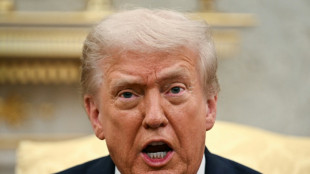
-
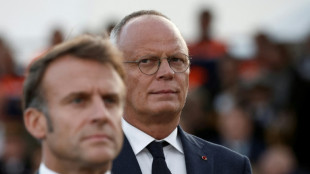 Macron urged to quit to end France political crisis
Macron urged to quit to end France political crisis
-
No.1 Scheffler seeks three-peat at World Challenge
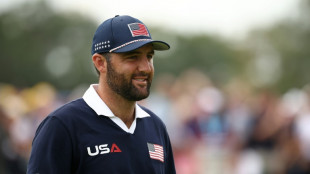
-
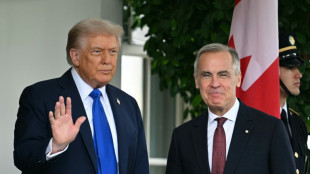 Canadian PM visits Trump in bid to ease tariffs
Canadian PM visits Trump in bid to ease tariffs
-
Stocks falter, gold shines as traders weigh political turmoil

-
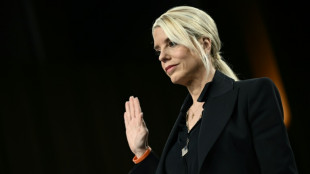 Senators accuse US attorney general of politicizing justice
Senators accuse US attorney general of politicizing justice
-
LeBron's 'decision of all decisions' a PR stunt
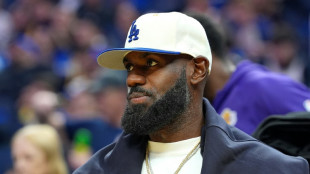
-
 Observing quantum weirdness in our world: Nobel physics explained
Observing quantum weirdness in our world: Nobel physics explained
-
WTO hikes 2025 trade growth outlook but tariffs to bite in 2026
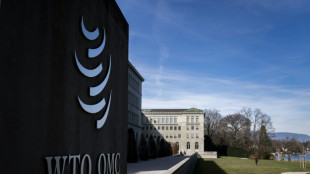
-
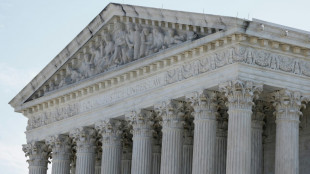 US Supreme Court hears challenge to 'conversion therapy' ban for minors
US Supreme Court hears challenge to 'conversion therapy' ban for minors
-
Italy's Gattuso expresses Gaza heartache ahead of World Cup qualifier with Israel
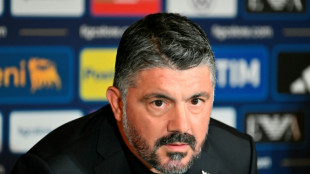
-
 EU targets foreign steel to shield struggling sector
EU targets foreign steel to shield struggling sector
-
Djokovic vanquishes exhaustion to push through to Shanghai quarterfinals

-
 Stocks, gold rise as investors weigh AI boom, political turmoil
Stocks, gold rise as investors weigh AI boom, political turmoil
-
Swiatek coasts through Wuhan debut while heat wilts players

-
 Denmark's Rune calls for heat rule at Shanghai Masters
Denmark's Rune calls for heat rule at Shanghai Masters
-
Japanese football official sentenced for viewing child sexual abuse images
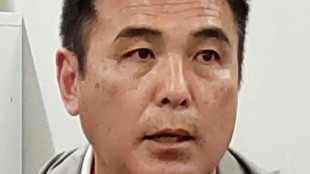
-
 'Veggie burgers' face grilling in EU parliament
'Veggie burgers' face grilling in EU parliament
-
Trio wins physics Nobel for quantum mechanical tunnelling

-
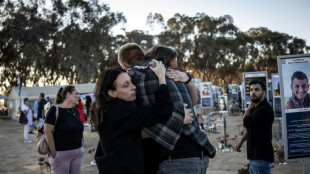 Two years after Hamas attack, Israelis mourn at Nova massacre site
Two years after Hamas attack, Israelis mourn at Nova massacre site
-
German factory orders drop in new blow to Merz
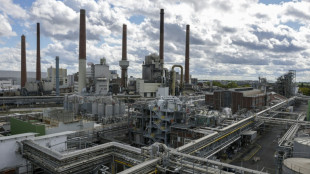

Russia cautious on Armenia-Azerbaijan deal, Iran reject border corridor
Russia cautiously welcomed a US-brokered draft deal between Armenia and Azerbaijan on Saturday, but Moscow's regional ally Iran rejected the idea of a new border corridor backed by President Donald Trump.
The two former Soviet republics signed a peace deal in Washington on Friday to end a decades-long conflict, though the fine print and binding nature of the deal remained unclear.
The US-brokered agreement includes establishing a transit corridor through Armenia to connect Azerbaijan to its exclave of Nakhchivan, a longstanding demand of Baku.
The United States would have development rights for the corridor -- dubbed the "Trump Route for International Peace and Prosperity" -- in the strategic and resource-rich region.
But Russia's ally and the warring parties' southern neighbour Tehran said it would not allow the creation of a such a corridor running along the Iranian border.
"With the implementation of this plot, the security of the South Caucasus will be endangered," Akbar Velayati, an advisor to supreme leader Ayatollah Ali Khamenei told the Tasnim news agency.
The planned corridor was "an impossible notion and will not happen", while the area would become "a graveyard for Trump's mercenaries", he added.
In a similar tone, Moscow said it would "further analyze" the corridor clause, noting there were trilateral agreements in place between Russia, Armenia and Azerbaijan, from which no one had yet withdrawn.
"It should not be ignored that Armenia's border with Iran is guarded by Russian border guards," said Russian foreign ministry spokeswoman Maria Zakharova.
Moscow, previously a key backer of Armenia, still has a military base there. Embroiled in its Ukraine operation, launched in 2022, it did not intervene in the latest conflict.
This has strained the historically warm ties between Yerevan and Moscow, home to a large and influential Armenian diaspora, triggering Armenia's drift towards the West.
- Waning influence -
Christian-majority Armenia and Muslim-majority Azerbaijan went to war twice over their border and the status of ethnic enclaves within each other's territories.
Moscow, once the main power broker in the Caucasus, is now bogged down in its more than three-year offensive in Ukraine, diverting political and military resources into the grinding conflict of attrition.
Both Armenia and Azerbaijan praised the US efforts in settling the conflict. Azerbaijani President Ilham Aliyev even said he would back President Donald Trump's nomination for the Nobel Peace Prize.
The US-led NATO alliance welcomed the deal as a "significant step forward".
But in Moscow, Zakharova refrained from even calling it a deal, referring to it merely as "the meeting of the leaders of the South Caucasus republics in Washington" -- adding, however, that it still deserved "a positive assessment".
- Repackaging for Trump? -
Analysts also sounded a note of caution, with the International Crisis Group pointing out that the deal left "a lot of questions unanswered".
The two countries went to war twice over the disputed Karabakh region, which Azerbaijan recaptured from Armenian forces in a lightning 2023 offensive, sparking the exodus of more than 100,000 ethnic Armenians.
Azerbaijan and Armenia agreed on the text of a comprehensive peace deal in March.
Much of the White House agreement was a "repackaging" of that, which helped both countries get on Trump's good side "by giving him a role," the Crisis Group's senior South Caucasus analyst Joshua Kucera said.
Azerbaijan later added a host of demands to that March deal, including amendments to Armenia's constitution to drop territorial claims for Karabakh, before signing the document.
Pashinyan has announced plans for a constitutional referendum in 2027, but the issue remains deeply divisive among Armenians, with Kucera warning that this could yet derail the process.
Kucera called the corridor "one potentially significant development" from the White House meeting, but added that missing key details could prove "serious stumbling blocks".
Nevertheless, she added, even if many details were still missing and nothing was guaranteed, the deal still gave Armenians "a promise of a better life and then maybe even more peace in the region".
R.Flueckiger--VB
